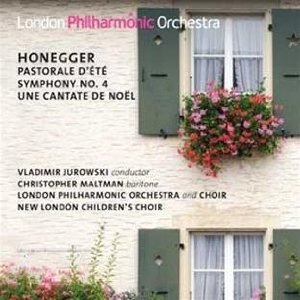It took a relatively little-noticed television documentary, Vlad’s Army, broadcast in Channel 4’s Unreported World strand to confirm that theartsdesk has a readership in Russia. Peter Oborne’s film (the presenter pictured below) caught the pro-Kremlin youth movement, the Nashi, with its defences down, and the result depicted, no holds barred, how politics works there today.

Two precisely imagined dream-visions bookend a cornucopia on the musical front. I’ll start with the deadly but save the apparently frivolous for the top slot. Christopher Alden’s pitiless exiling of Britten’s A Midsummer Night’s Dream from Elizabethan wood to 1960s school block was to opera what Lars von Trier’s Melancholia was to film: audience-sundering, often alienating, sometimes enticing, but very much its own consistent world. Its splendid cast and conductor Leo Hussain worked as one to enhance the paradoxes of its terrible beauty.

Living and working 150 miles from London, one either clutches at local straws or gets on a train. I’ve done both in 2011, as usual, but in a way the local is more stimulating, not because it’s better (ha!) but because there’s so much less of it.

Beethoven has been a real touchstone for classical music in the UK in 2011; flattening all in their way, the mighty Leipzig Gewandhaus and Riccardo Chailly delivered high-speed, high-risk thrills in their complete cycle of symphonies.

The poster boy for a generation of thinking, reading, researching soloists, tenor Ian Bostridge is a regular recitalist. But the programmes he has curated for the current Bostridge Project at the Wigmore Hall have given him the opportunity to show that there’s a lot more to his skills than just performance.

Is it ever a good idea to programme two symphonies by one composer in a single concert? Maverick Valery Gergiev is likely to stand alone in applying the rule to Mahler. Yet curiously his Prom marathon of two big instalments made more sense as stages on a journey than yoking together the outwardly less time-consuming symphonic adventures of Sibelius. Jukka-Pekka Saraste's attempt last night to run the opposing approaches of the last two Sibelius symphonies head to head worked no better than usual.

Just a few weeks ago, John Eliot Gardiner and his Orchestre Révolutionnaire et Romantique delivered what was unquestionably one of the year’s finest concerts – performing Beethoven’s Fourth and Seventh Symphonies with more wit, swagger and verve than even the mighty Leipzig Gewandhaus could muster. Returning to Beethoven last night with the very different orchestral forces of the London Symphony Orchestra, the question was surely whether Gardiner could summon the same magic for a second time.

It’s typical: you wait ages for a Belshazzar’s Feast and then two come along at once. And judging by the performance delivered by Ed Gardner and the BBC Symphony Orchestra and Chorus last night, Andrew Nethsingha and his massed Cambridge choirs will have their work cut out to follow it next week at the Royal Festival Hall. Throbbing with dance, gaudy as an Eastern bazaar painted by a second-rate Victorian artist, Gardner’s Belshazzar was a wash of Technicolor extravagance among the twee reds and greens of Christmas classical programming.



Now that Margaret Price is no more and Kiri's well past her heyday, whose is the most limpid soprano of them all? "The beautiful voice" was a label slapped by PR on Renée Fleming, but that fitfully engaging diva is all curdled artifice alongside Anne Schwanewilms, the German soprano who shines in Strauss and should be an example to any singer for ease, charm and what to do with the hands in the exposed light of song recital.

